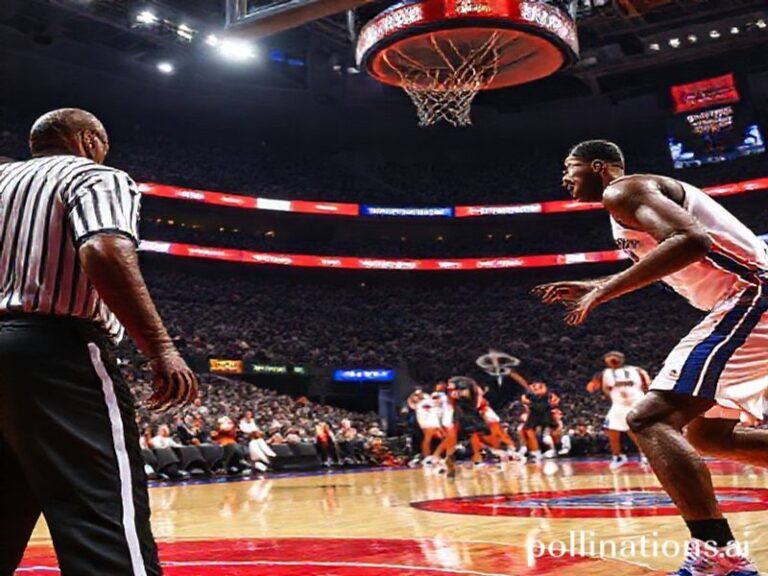Strasbourg vs Marseille: The Football Match That Became a Global Rorschach Test
Strasbourg vs Marseille: When Two Cities Become a Proxy War for Everyone Else’s Problems
By Dave’s Locker International Correspondent
It started as a Ligue 1 fixture on a damp Saturday night, but by the final whistle the Strasbourg–Marseille grudge match had metastasised into a geopolitical Rorschach test. One side represented “Europe” (in the sense that Strasbourg hosts the European Parliament whenever MEPs feel like moving office furniture); the other embodied “The Mediterranean” (in the sense that Marseille is where EU border policy goes to smoke unfiltered Gauloises and question its life choices). If you squinted hard enough, you could see the entire planet elbowing for space on the touchline.
Consider the global audience. In Singapore, an equities trader streamed the game on two monitors while betting crypto on the number of stoppages—an economic indicator he labelled “French Protest Volatility.” In Lagos, an influencer live-tweeted player hairstyles as a metaphor for neocolonial resource extraction (“Look at that fade—clearly a structural-adjustment-program cut”). And in Washington, a congressional intern screenshotted every VAR decision to prove, somehow, that multilateral institutions are unreliable.
On the pitch, Strasbourg’s players pressed like Scandinavian social democrats: earnest, organised, slightly cold. Marseille countered with the swagger of an Italian port mafia that had just discovered TikTok. The irony, of course, is that both squads are staffed by Brazilians, Algerians, and a lone Icelandic goalkeeper who wonders how his career ended up as a referendum on continental identity.
The match’s only goal arrived courtesy of a Marseille striker who learned his trade in the banlieues—those concrete petri dishes where France tests new blends of inequality and hip-hop. He celebrated by forming a heart with his hands, a gesture instantly co-opted by European Commission Twitter as proof that “cohesion policy works,” while Italian tabloids complained that the heart was clearly angled toward North Africa and therefore a migrant dog-whistle.
Off the field, the city councils duelled in op-eds. Strasbourg reminded the world it hosts the European Court of Human Rights and therefore owns the copyright on moral superiority. Marseille responded that it houses 140 nationalities, which is either multicultural paradise or a security dossier the size of the Calanques, depending on your news outlet. In a masterstroke of bureaucratic theatre, Strasbourg unveiled a “climate-neutral fan zone” powered by Alsatian hamster wheels; Marseille simply opened a pop-up pastis bar and let the sea breeze do the branding.
Global corporations took notes. A Chinese EV manufacturer used drone footage of both stadiums for an ad implying that buying their sedan will solve Western decline; nobody blinked. A Silicon Valley start-up pitched an app that translates ultras’ chants into hedge-fund risk language (“‘Aux armes!’ = 200 basis-point yield spike”). By Monday, Goldman Sachs issued a white paper titled “Ligue 1 as Emerging-Market Debt: A Framework,” which nobody read except the Icelandic goalkeeper, who now hedges his contract in krona.
And yet, beneath the layers of meta-commentary, the game was still 22 people chasing a ball to escape the tedium of mortality. The Marseillais ultras lit flares that looked, from a drone’s altitude, like tiny exclamation marks screaming into the void. Strasbourg’s fans responded with a tifo depicting Europa riding a stork—an image so aggressively wholesome it circled back to menacing. Both sets of supporters ended the night drinking together in a kebab shop, united by the realisation that their cities are just brand assets for people who holiday elsewhere.
The final whistle blew, 1–0 to Marseille, but the score felt irrelevant. The real victor was the global attention economy, which converted 90 minutes of provincial French football into a week’s worth of think-pieces, sanctions debates, and influencer reels. As dawn broke over the Rhine, a bored customs officer summed it up: “Cities fight, the world watches, the river keeps floating east.” He stamped a passport with the resigned efficiency of a man who knows tomorrow’s derby is only ever a metaphor for something bigger, sadder, and far less entertaining.







